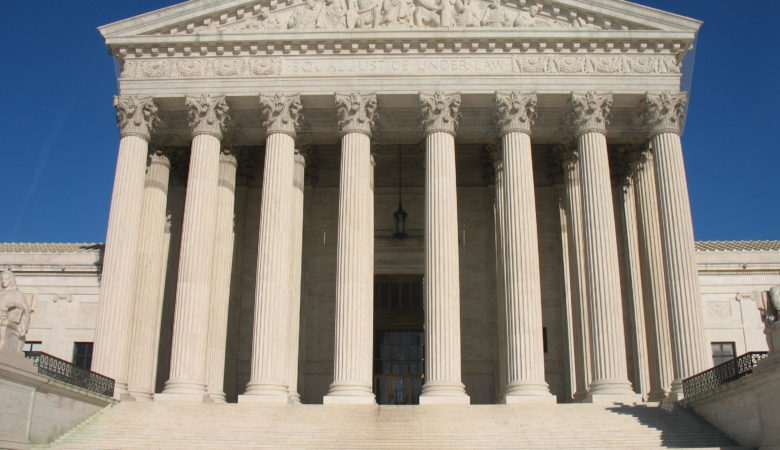U.S. Supreme Court Strengthens Trademark Owner’s Rights in Landmark Decision
The First Amendment once again comes to the defense of trademark owners. Scandalous trademarks are now completely trademarkable in the United States after the announcement of the Supreme Court’s decision on June 24 in the case Iancu v. Brunetti. Property Rights Alliance applauds this affirmation of trademark owners’ rights.
Previously, the registration of “immoral, deceptive, or scandalous matter” was banned under section 2(a) of the Lanham Act. This section of the act was challenged by Erik Brunetti, owner of the apparel brand Fuct, who was denied an application to trademark the name by the US Patent and Trade Office (USPTO) due to the name being immoral or scandalous.
After the Trademark Trail and Appeal Board (TTAB) sided with USPTO, Brunetti appealed to the US Court of Appeals for the Federal Circuit, which reversed the decision and Brunetti was awarded the trademark. USPTO then petitioned the Supreme Court to review the case, which was accepted in January 2019.
The Supreme Court’s ruling in the Iancu case follows along the same line of reasoning that it followed in Matal v. Tam (2017) which held that the Disparagement Clause in the Lanham Act violated the First Amendment. In Iancu, the Court held that the trademark registration bar is viewpoint based, which is also in violation of the First Amendment.
The government argued that the section of Lanham Act in question was viewpoint neutral and urged the Court to ignore the language of the Lanham Act on its face. However, according to Justice Kagan, who wrote the opinion for the Court, “to cut the statute off where the government urges is not to interpret the statute enacted, but to fashion a new one.”
The Iancu decision is the latest in a series of decisions that invoke the First Amendment in order to protect the creativity and originality of brands. This includes the defending the validity of the “Comfyballs” boxers and of an Asian-American rock band’s name “The Slants.” Earlier this year, the Court of Appeals for the Ninth Circuit struck down a mandatory warning on soda packaging as an infringement on protected speech.
Property Rights Alliance applauds this latest decision from the Supreme Court as it strengthens the property rights of brand owners by allowing them to register their brand names, even if some may view the name as “immoral or scandalous.” The registration of trademarks protects against imitations that could be of lower quality and that could tarnish the relationship between brand and consumer. This a positive development for both consumers and brand owners.

